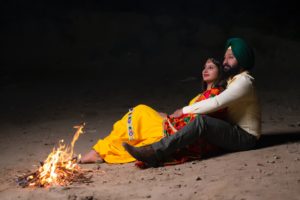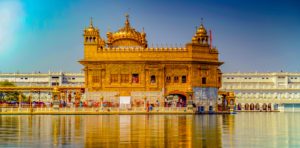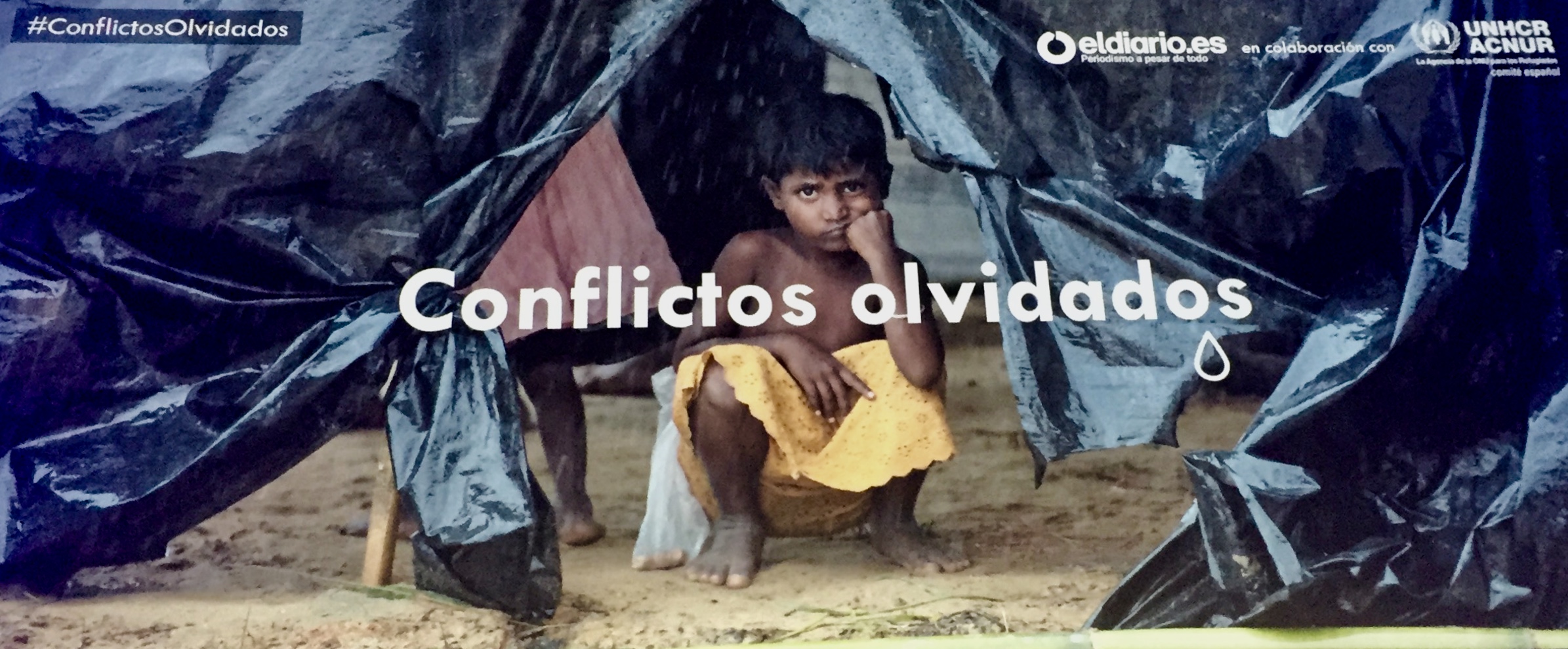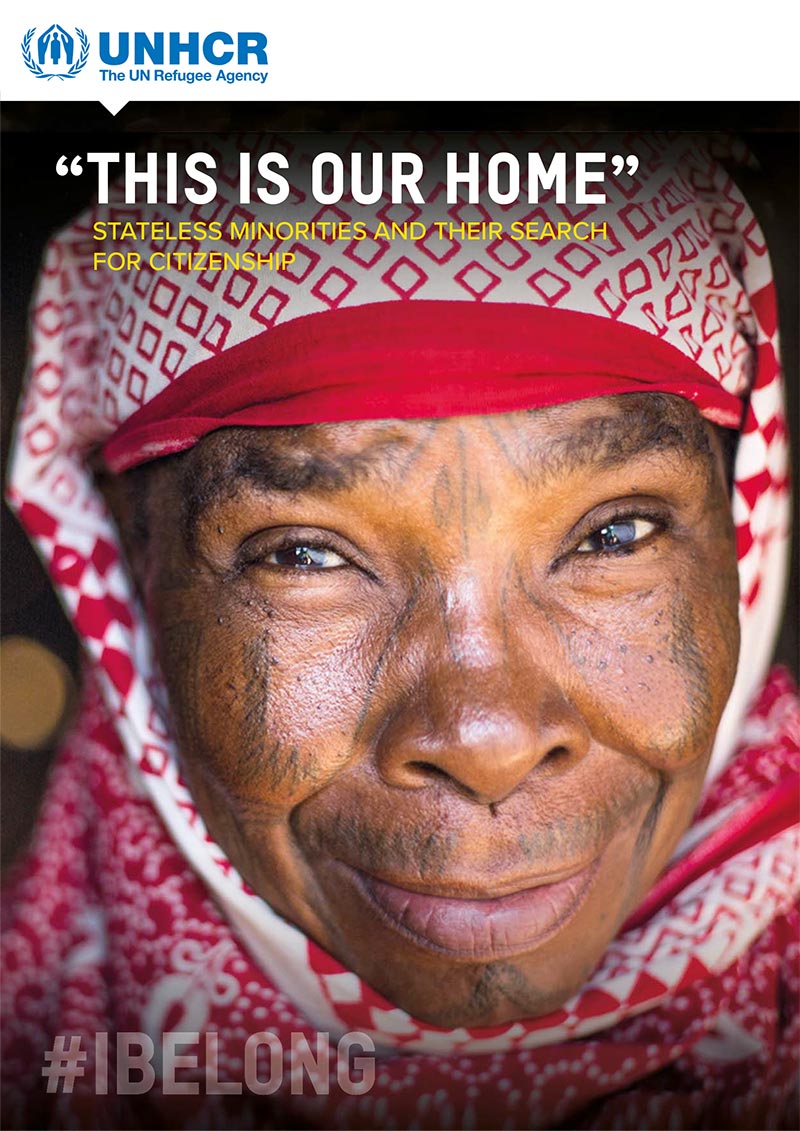
Sikhi (commonly referred to a Sikhism in the Western world) is the fifth’s largest religion.Sikhi originated in 1459 in Punjab, North India by Guru Nanak, one of The Ten Gurus (Guru meaning teacher) who are messengers of God.Sikhs do not believe in rituals, caste, conversion, hierarchy, or praising images, statues, figures, and people.They believe in only One God (Ik Onkar) and that everyone is equal regardless of age, gender, race, religion, and background. Sikhs should bond their soul with God who has no shape, form, or gender.
 Sikhs are loving, family orientated and are educated to stand up for what is right and true. They have a distinctive appearance wearing turbans and keep their hair natural and uncut as God made them. The turban is worn as a symbol of a crown and symbolises the struggles and efforts of those who fought for the religion. It represents the longstanding commitment to serving the community and fighting injustice. It also keeps their hair tied back neat and clean. Sikhs have 5 articles of faith known as the 5Ks (Kesh- uncut hair, Kirpan- steel sword, Kanga- wooden comb, Kachera- undergarment, and Kara- steel bangle) which symbolise them.
Sikhs are loving, family orientated and are educated to stand up for what is right and true. They have a distinctive appearance wearing turbans and keep their hair natural and uncut as God made them. The turban is worn as a symbol of a crown and symbolises the struggles and efforts of those who fought for the religion. It represents the longstanding commitment to serving the community and fighting injustice. It also keeps their hair tied back neat and clean. Sikhs have 5 articles of faith known as the 5Ks (Kesh- uncut hair, Kirpan- steel sword, Kanga- wooden comb, Kachera- undergarment, and Kara- steel bangle) which symbolise them.
Men use the middle name Singh which means Lion and women use the middle name Kaur which means princess.

The Khanda is the symbol of Sikhi and is often seen at the place of worship for Sikhs, the Gurudwara. The Gurudwara is a place for not only Sikhs to worship but also a place where everyone is welcome. Sikhs do not discriminate against non-Sikhs or other religions/races
from entering their place of worship. Sikhs fought for those oppressed and the ninth Guru, GuruTegh Bahadur sacrificed his life for Hindus who were being forced into conversion.
The Sikh Holy Scripture, the Guru Granth Sahib is kept inside the Gurudwara and is considered as the 11th eternal Guru. Hymns and poems are read and worshippers can listen to it, learn from it, gain intellect, enlightenment, enjoyment, peace, feel closer to God and their religion and more. Also inside the Gurudwara, free vegetarian meals are served. People donate and bring ingredients in to help the Gurudwara and volunteer with the making of the food to give back and help others. Sikhs are always willing to help others and give Sewa (act of selfless service). Sikhs donate, serve food, volunteer at food banks, and give back whenever they can.
It is estimated that about 100,000 people are served in the Langar Hall (free community kitchen) at T he Golden Temple (On The Go Tours, 2019). You may have heard about The Golden Temple, a beautiful place of worship in Amritsar, India visited by millions of pilgrims and travelers every day. Its official name is Harmandir/Darbar Sahib however in the Western world it’s otherwise known as The Golden Temple as it’s covered in Gold. It has four entrances because anyone from any place, background, gender, and race can enter as it’s open to all.
he Golden Temple (On The Go Tours, 2019). You may have heard about The Golden Temple, a beautiful place of worship in Amritsar, India visited by millions of pilgrims and travelers every day. Its official name is Harmandir/Darbar Sahib however in the Western world it’s otherwise known as The Golden Temple as it’s covered in Gold. It has four entrances because anyone from any place, background, gender, and race can enter as it’s open to all.
Sikh history and beyond is filled with justice, helping others, and following the path to One God. Sikhs are about service and remaining true to one’s self and One God.
By Sim Garcha (University of Westminster – UK)



